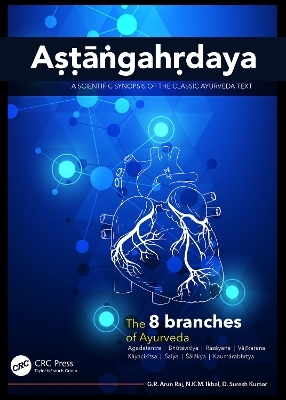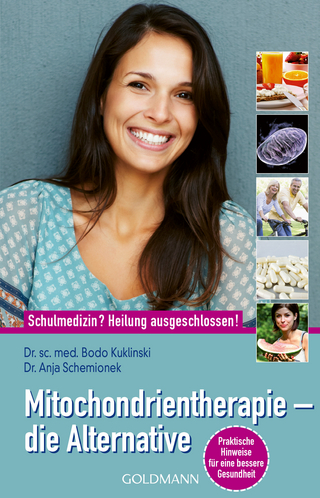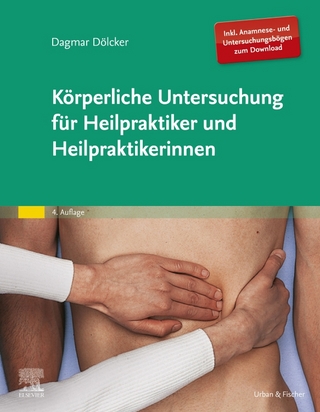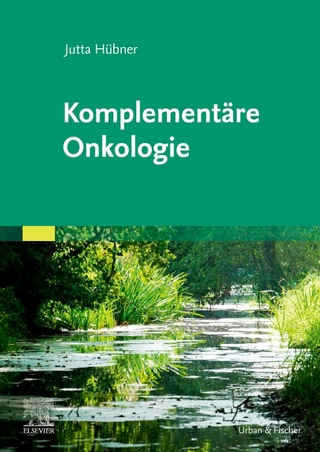
Aṣṭāṅgahṛdaya
CRC Press (Verlag)
978-0-367-68572-0 (ISBN)
Worldwide interest in Ayurveda is on the rise, ever since the World Health Organization adopted the Alma Ata Declaration in 1978. Ayurveda is increasingly being adopted and many phytotherapy schools in Europe and the Americas teach Ayurveda as a wellness system. Considering the prominent position that Aṣṭāṅgahṛdaya occupies in Ayurveda, a scientific synopsis of this masterpiece is now presented before the world of Ayurveda.
In eight comprehensive chapters, Aṣṭāṅgahṛdaya: A Scientific Synopsis of the Classic Ayurveda Text presents a lucid summary of the teachings of Vāgbhaṭa. Ayurvedic view of the human body, basic principles of Ayurveda, surgical armamentarium, diagnosis and treatment of diseases, herbs and other medicinal substances used in the preparation of various dosage forms, ayurvedic pharmaceutialcs, ayurvedic approach to food fortification, salient features of Aṣṭāṅgahṛdaya and a roadmap for the future are among the topics discussed.
Key Features:
Presents the ayurvedic view of conception and the human body.
Discusses aspects of ayurvedic pharmaceuticals.
Examines diagnosis of diseases, lines of treatment, prognosis of diseases, signs of imminent death, management of mishaps and treatment of new diseases.
The voluminous information pertaining to the subjects of the various chapters is presented in the form of many tables for ready reference and quick survey. This book provides a helping hand to those interested in rediscovering the teachings of Vāgbhaṭa and is a great resource for researchers of medicine, traditional and alternative medicine, pharmacology and drug discovery.
Dr. G. R. Arun Raj (born 19 November, 1985) from Kollam, Kerala State, India graduated in Bachelor of Ayurvedic Medicine and Surgery, from Sree Narayana Institute of Ayurvedic Studies and Research, Kollam, in 2009. He secured M.D. (Ayu.) degree from Rajiv Gandhi University of Health Sciences, Bangalore in 2014. He has published about 87 papers in various national and international journals. He is the author of chapters in Nutraceuticals and Functional Foods (Studium Press LLC, Houston, 2016) and Ayurveda in the New Millennium (CRC Press, Florida, 2021). He was identified as expert by Ministry of AYUSH, Govt. of India for developing Technical Guidelines for Integration in March 2021. He is the principal investigator of a major research project on spastic cerebral palsy sponsored by Rajiv Gandhi University of Health Sciences. Currently he is working as Assistant Professor and pediatric consultant, Department of Ayurvedic Pediatrics, SDM College of Ayurveda and Hospital, Hassan. He is also the Dean for research publications and member of Institutional research committee, SDM College of Ayurveda. His research interests include application of traditional medicine in public health, developmental pediatrics and infant and child nutrition. E. mail: drdarunraj26@gmail.com Dr. N.K.M. Ikbal, Born on 14 September 1964 at Palakkad in Kerala, Dr. N.K. Muhammed Ikbal graduated with Bachelor of Ayurvedic Medicine and Surgery degree from Vaidyaratnam P.S. Variar Ayurveda College, Kottakkal in 1988. He successfully completed Masters in Ayurveda (MD) from Government Ayurveda Medical College, Bangalore University in 1992 and completed doctoral studies leading to PhD from Sree Sankaracharya University, Kalady, Kerala in 2000. Dr Ikbal served a short stint (1992) as Lecturer at Ayurveda College, Coimbatore, later joining Vaidyaratnam Ayurveda College, Thrissur in 1993. He is presently working as Professor and Head of the Department of Śalyatantra with 30 years of active presence in the academy, research and profession. He had worked as Visiting Professor and External Examiner for the Ayurveda Degree Program at Thames Valley University, London (1999 - 2006) and Visiting Faculty at Chung Bo Institute, Seoul, South Korea (2006). He has published original research papers and serves as the Executive Editor of Vaidyaratnam Journal of Ayurvedic Medicine (V-JAM), which is published once in four months. Dr. Ikbal is the founder member of National Suśruta Association (Association of Ayurvedic Surgeons of India). He has attended several national and international seminars as key speaker on topics of interest ranging from immunology, rheumatology and surgical specialties in Ayurveda. He contributed the opening chapter What we learn from the history of Ayurveda in Ayurveda in the New Millennium- Emerging Roles and Future Challenges, published by CRC Press, Boca Raton, Florida (2021). E. mail: ikbalnk@hotmail.com D. Suresh Kumar was born on 21 September 1949, in the southern Indian province of Kerala, where he received his early education. He obtained a B.Sc. degree in zoology from the University of Kerala (1969) and secured M.Sc. (1972) and Ph.D. degrees (1977) from Banaras Hindu University, Varanasi. His doctoral thesis was on the hormonal control of oxidative metabolism in reptiles. Thereafter, he spent two years as a postdoctoral fellow in the Department of Biological Sciences, University of Aston in Birmingham, England, investigating the pancreatic physiology of the rainbow trout. He returned to India in 1980 and joined the Department of Zoology, University of Calicut, Kerala, as pool officer in the scientist pool of the Council of Scientific and Industrial Research, New Delhi. During his stay there, a chance encounter with some religious persons introduced him to the study of Ayurveda, the traditional medical system of India. He undertook a survey of the state of Ayurveda in the province and published his findings in provincial and national weeklies. In 1986, he joined the International Institute of Ayurveda, Coimbatore, as a research officer in the Department of Physiology. From 1986 to 2003, he carried out research on various aspects of Ayurveda. In collaboration with Dr Y.S. Prabhakar, formerly of C.D.R.I. Lucknow, he proposed the first mathematical model for the ayurvedic concept of tridōṣa in the disease state. He also offered a novel definition for the ayurvedic class of medicine arka, based on his study of the Sanskrit text Arkaprakāśa. In 2003, he joined Sami Labs Ltd, Bangalore, as a senior scientist in the R&D laboratory. He spent several years in the company working on various aspects of new product development. From 2012 to 2015, he worked as head of the R&D laboratory of the Ayurveda consortium, Confederation for Ayurveda Renaissance Keralam Ltd, Koratty, Kerala. In January 2016, he joined Cymbio Pharma Pvt Ltd, Bangalore as Head of New Product Development, and since July 2019 he works as an Ayurveda consultant. He is the author of Herbal Bioactives and Food Fortification: Extraction and Formulation (2016) and editor of Ayurveda in the New Millennium (2020) published by CRC Press. Email: dvenu21@yahoo.com
Introduction. The Human Body. Fundamental Principles of Longevity. Surgical Armamentarium. Diagnosis and Treatment of Diseases. Medicinal Substances. Medicinal Foods in Aṣṭāṅgahṛdaya. Roadmap for the Future. Glossary
| Erscheinungsdatum | 04.08.2022 |
|---|---|
| Zusatzinfo | 89 Tables, black and white; 2 Line drawings, black and white; 34 Halftones, black and white; 36 Illustrations, black and white |
| Verlagsort | London |
| Sprache | englisch |
| Maße | 178 x 254 mm |
| Gewicht | 630 g |
| Themenwelt | Sachbuch/Ratgeber ► Gesundheit / Leben / Psychologie ► Alternative Heilverfahren |
| Medizin / Pharmazie ► Allgemeines / Lexika | |
| Medizin / Pharmazie ► Naturheilkunde ► TCM / Ayurveda | |
| Naturwissenschaften ► Biologie | |
| Technik | |
| ISBN-10 | 0-367-68572-8 / 0367685728 |
| ISBN-13 | 978-0-367-68572-0 / 9780367685720 |
| Zustand | Neuware |
| Informationen gemäß Produktsicherheitsverordnung (GPSR) | |
| Haben Sie eine Frage zum Produkt? |
aus dem Bereich


